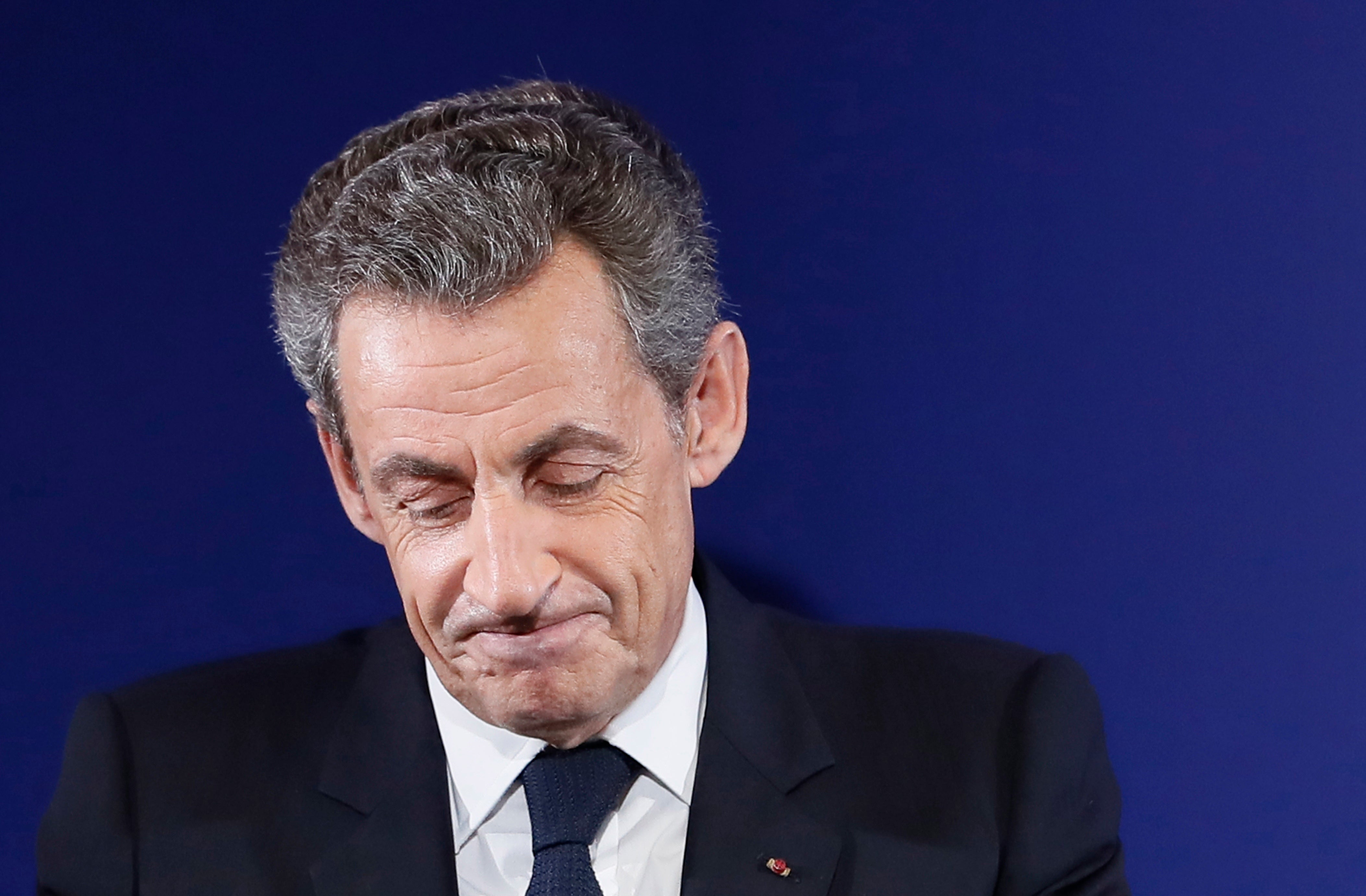Downfall of a President: No way back for disgraced Nicolas Sarkozy
Sarkozy, who styled himself as ‘Le Top Cop’, now has two criminal convictions, reports Peter Allen in Paris

Le Top Cop was a one of many nicknames that Nicolas Sarkozy revelled in when he became President of France in May 2007.
The diminutive conservative had spent years building up his power base as one of the country’s most reactionary Interior Ministers ever.
He referred to young lawbreakers from council estates as “scum” and called for harsher prison sentences to punish them with, while cracking down on any kind of political dissent with legions of riot control officers.
It was all part of a ruthless image that also often saw Sarkozy compared to Margaret Thatcher, another radical conservative whom he particularly admired.
The Frenchman’s dream was to revolutionise his country in the same way that the Iron Lady had altered the UK in the 1980s.
There would be a “rupture” with the past, Sarkozy claimed, and his stagnating republic would finally be dragged into the 21st Century.
Now, following two criminal convictions and potentially more on the way, Sarkozy’s political career is certainly over.
He is instead a convicted criminal who will spend the foreseeable future using France’s extremely liberal appeals procedure to try and stay out of a prison cell.
There may be some small consolation in being able to serve out part of his sentence with an electric tag, but it is certainly not what Sarkozy envisaged while growing up in the 17th arrondissement of Paris, and then in the prosperous suburb of Neuilly-sur-Seine.
His stature – he is 5ft 5ins in his Cuban heels – made him determined to try and assert himself in the world.
“What made me who I am now is the sum of all the humiliations suffered during childhood,” Sarkozy once admitted.
By the time he was 27 he was already Mayor of Neuilly, one of the richest towns in France, and a firm favourite of Jacques Chirac, the towering figurehead of the Union for a Popular Movement (UMP) party and a two-term president.
There was to be falling out with his mentor, but the maverick Sarkozy won over plenty of supporters of his own through his oratory and increasingly flashy image.
Sarkozy loved making money, showing off status symbols such as Rolex and Patek Philippe wristwatches, and being seen with statuesque beauties.
By the time he married his third wife, the former supermodel Carla Bruni, in 2008 he was already in the Élysée Palace, having been elected President the year before.
Ambitious right-wing ideas included limiting the powers of the trade unions and cutting France’s vast number of public servants.
Such plans came to nothing, however, as Sarkozy’s single term of office became best remembered for his high-living lifestyle with Ms Bruni.
The couple were frequently compared to Louis XVI and his Queen, Marie-Antoinette.
At one stage, Sarkozy was ordered to rein in his expenses after it emerged that he was spending more than £660 a day on flowers. Sarkozy and his wife also re-fitted one of France’s presidential jets with a £50,000 bread oven.
Sarkozy had had awarded himself a pay rise of 140 per cent when he came to power, and – beyond Ms Bruni – became primarily interested in looking after multi-billionaire friends such as Bernard Arnault, the head of the LVMH luxury goods empire, and the richest man in France.
Another very close crony of Sarkozy’s was the late Libyan dictator, Colonel Muammar Gaddafi – somebody who is said to have provided millions in laundered cash to the politician.
An investigation into such allegations is active, and is likely to lead to Sarkozy’s most serious criminal trial to date.
Sarkozy had initially treated Gaddafi as a firm friend – inviting him to Paris for a state visit of his own in 2007 – but then turned on him by setting up the bloody western intervention in Libya in 2011 which directly led to Gaddafi’s murder.
The military adventure, which saw Sarkozy working closely with former British Prime Minister David Cameron, is now blamed for turning the North African country into a failed state full of warlords, terrorists and people smugglers.
Despite the illegal overspending on his campaign, Sarkozy lost the 2012 presidential election to his detested Socialist rival, François Hollande.
Almost instantly, the Sarkozy home in Paris was raided by fraud squad officers, because the outgoing head of state had lost his presidential immunity from prosecution.
There have been attempted comebacks since, and Sarkozy remains popular among a small group of hardened fans, albeit ones who have long since discarded his Top Cop sobriquet.
Join our commenting forum
Join thought-provoking conversations, follow other Independent readers and see their replies
Comments
Bookmark popover
Removed from bookmarks